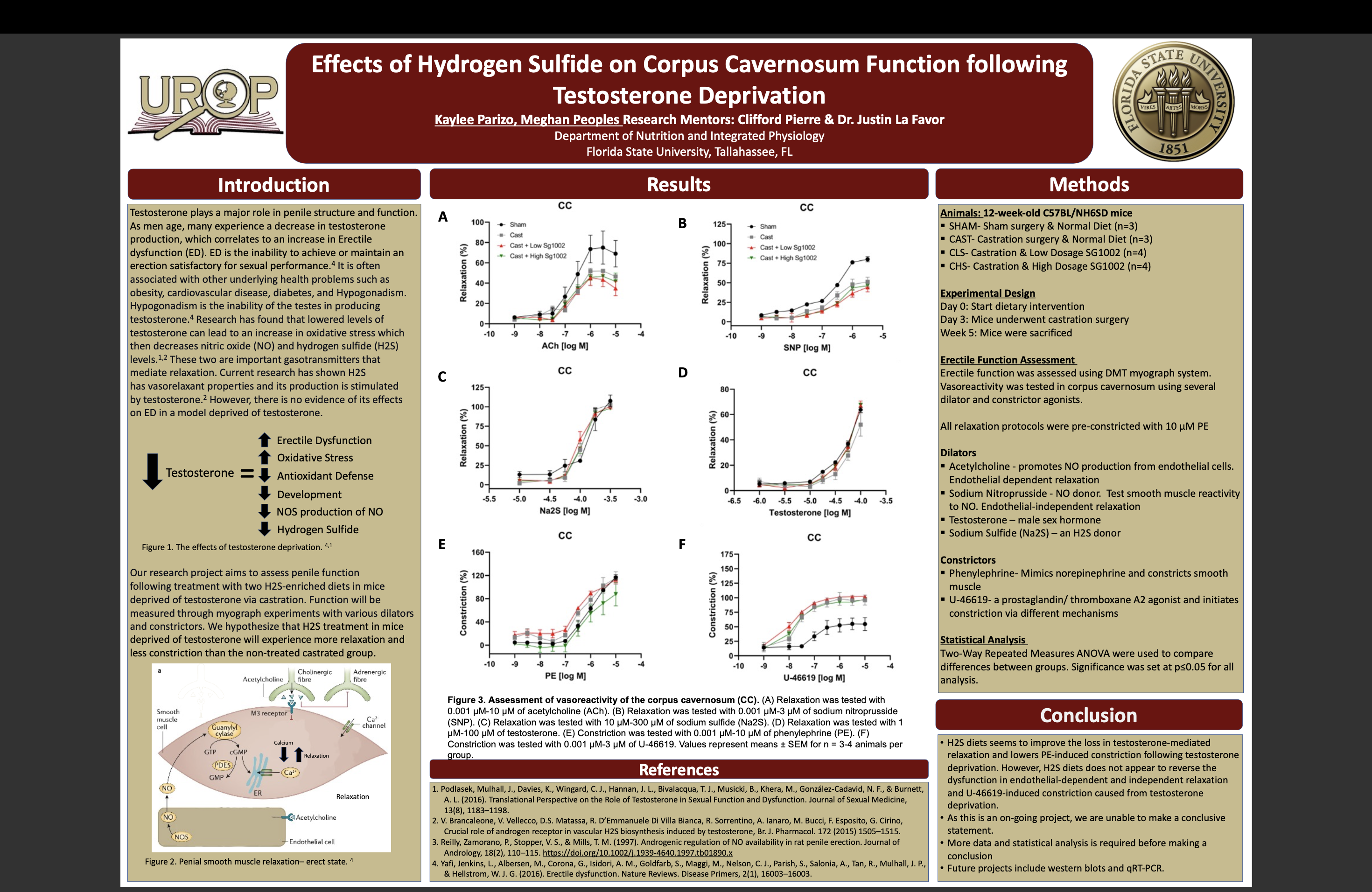Research Symposium
23rd annual Undergraduate Research Symposium, April 6, 2023
Meghan Peoples Poster Session 2: 1:30 pm - 2:30 pm/ Poster #340
BIO
Hi! My name is Meghan Peoples and I'm a first-year here at FSU. I grew up just outside of Tampa, Florida and am currently an Exploratory major. On a pre-Med track, I soon hope to declare as Cell and Molecular Neuroscience. I am very excited and looking forward to presenting the research I have assisted on over the past year!
Effects of Hydrogen Sulfide on Corpus Cavernosum Function following Testosterone Deprivation
Authors: Meghan Peoples, Clifford PierreStudent Major: Exploratory
Mentor: Clifford Pierre
Mentor's Department: Department of Nutrition and Integrated Physiology Mentor's College: College of Human Sciences Co-Presenters: Kaylee Parizo
Abstract
Testosterone plays a major role in penile structure and function. As men age, many experience a decrease in testosterone production, which correlates to an increase in Erectile dysfunction (ED). ED is the inability to achieve or maintain an erection satisfactory for sexual performance. It is often associated with other underlying health problems such as obesity, cardiovascular disease, diabetes, and Hypogonadism. Hypogonadism is the inability of the testes to produce testosterone. Research has found that lowered levels of testosterone can lead to an increase in oxidative stress which then decreases nitric oxide (NO) and hydrogen sulfide (H2S) levels. These two are important gasotransmitters that mediate relaxation. Our research project aims to assess penile function following treatment with two H2S-enriched diets in mice deprived of testosterone via castration. We hypothesize that H2S treatment in mice deprived of testosterone will experience more relaxation and less constriction than the non-treated castrated group.
Keywords: STEM, Urology, Testosterone

